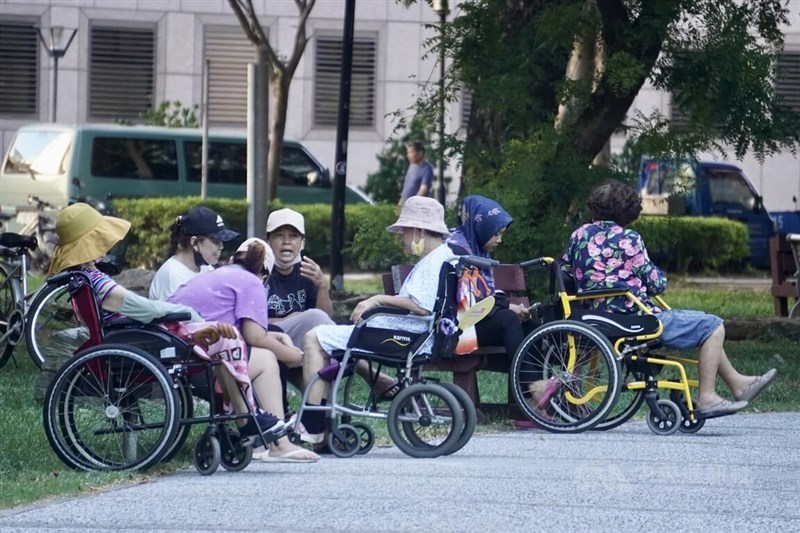
Taipei, July 28 (CNA) With a revised law set to take effect on Aug. 1 allowing people aged 80 and older to hire foreign caregivers without undergoing health evaluations, several civil groups on Monday warned that the policy could limit access to care for those with more urgent needs.
An amendment to Article 46 of the Employment Service Act, which becomes effective on Aug. 1, allows employers to hire live-in foreign caregivers for individuals aged 80 and older, or those between 70 and 79 diagnosed with stage II cancer or above, without requiring a health evaluation by a medical institution.
However, several civic groups have expressed concern that the new policy may have a negative impact on the families of critically ill people or individuals with disabilities to hire foreign caregivers because such workers may prefer providing care to seniors over ill patients.
Civil organizations and a lawmaker voiced concerns Monday that people with disabilities, rare diseases, dementia or elderly people with severe impairments might now have to compete with relatively healthy or slightly frail seniors to hire caregivers and be forced to pay higher wages.
Chen Ching-ning (陳景寧), director of the Taiwan Association of Family Caregivers, expressed worry about the supply of caregivers.
She indicated that Taiwan added at most only around 14,000 new foreign caregivers in a year over the past few years. "The employment of foreign labor is not something Taiwan can decide unilaterally."
As a result, she urged the government to shift the eligibility basis back to actual care needs rather than age, to prevent foreign caregivers from opting for easier cases and forcing families with seriously ill members to raise pay to retain caregivers.
In addition, ruling Democratic Progressive Party Legislator Lin Yueh-chin (林月琴) said that the new rules will add approximately 100,000 eligible seniors to those able to hire foreign caregivers, most of whom are relatively healthy and easier to care for.
These individuals will likely become the preferred option for foreign workers, making it harder for families of people with dementia or severe disabilities to find caregivers, she said.
Lin emphasized that globally, countries are facing labor shortages and competition for care workers. The problem is particularly serious in Taiwan as its wages are not as competitive as those in Japan or South Korea.
As such, Lin called for a temporary halt to the policy's implementation and recommended the Ministry of Labor (MOL) develop a tiered hiring system based on the severity of care needs.
Sun Yi-hsin (孫一信), a long-time activist for the rights of the physically challenged, said that after the amended law comes into force, it will increase the number of individuals eligible to hire foreign caregivers to 530,000.
With the current number of caregivers at around 210,000, once the additional 100,000 people become eligible to apply for caregivers, that will increase competition significantly, he said.
In addition, Hung Yu-tai (洪瑜黛), deputy executive director of the Taiwan Foundation For Rare Disorders, said that a recent survey following the introduction of the amendment found that 40 percent of caregivers said they would ask for a raise, and 23 percent consider switching employers.
In response, the MOL said that as the competent authority, it takes the potential impact very seriously, adding that the ministry has held multiple inter-ministerial meetings with the Ministry of Health and Welfare to develop supporting measures aimed at minimizing the impact.
A joint press conference by the two ministries is scheduled for Tuesday, during which six major supporting measures will be announced, focused on integrating various resources to alleviate the impact on families that have individuals with severe medical conditions, it added.
- Society
Man indicted for attempted murder in stabbing of ex-Fu Jen president
11/19/2025 10:15 PM - Politics
- Business
TSMC expansion pushes Taiwanese working in U.S. to record high
11/19/2025 09:46 PM - Business
TSMC unlikely to be affected by trade secrets leak: Pegatron chair
11/19/2025 09:31 PM - Society
2 magnitude 4.5 earthquakes shake eastern Taiwan
11/19/2025 09:12 PM